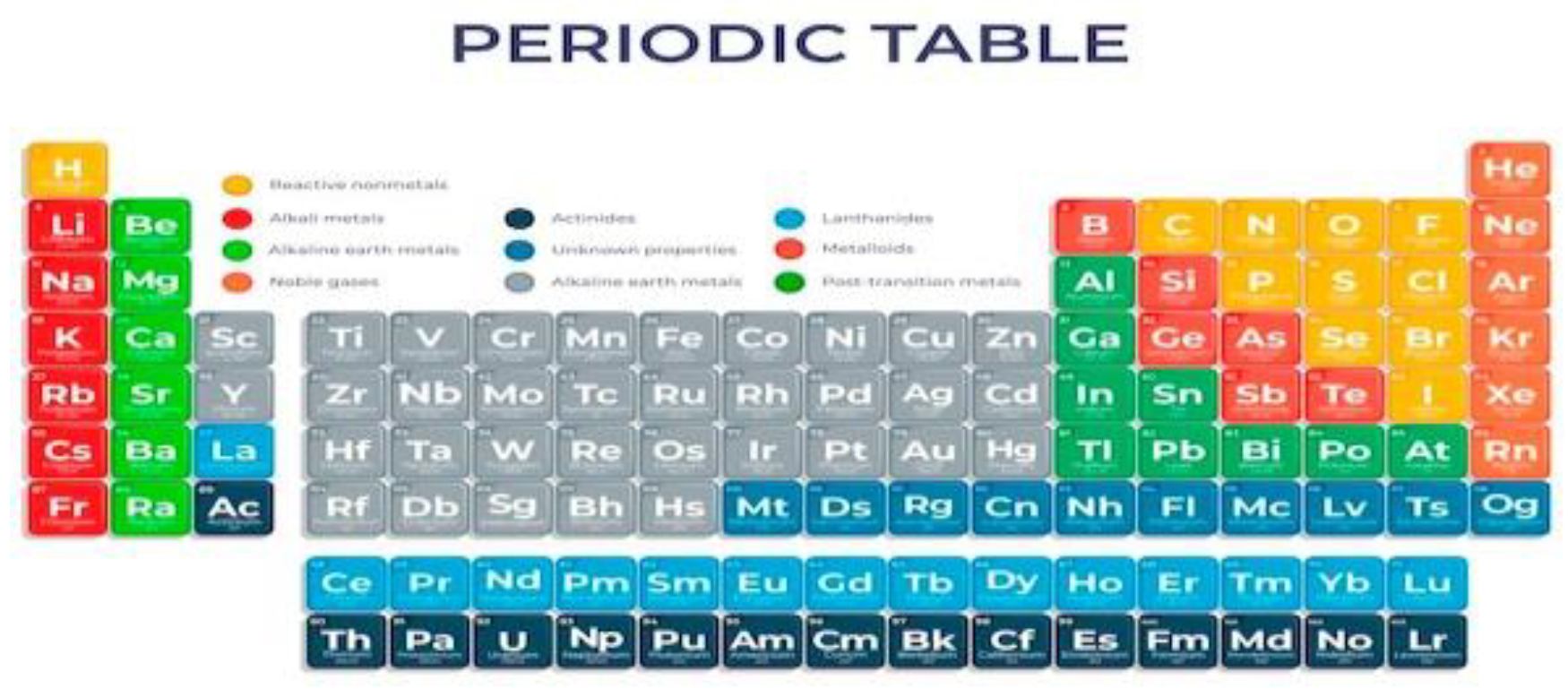1. Introduction
The origin of the universe is still a great mystery for humanity, but it is possible to advance in understanding the origin of the universe, just by observing the facts, so it will be possible to obtain information about the origin of the universe.
From observation of the facts it is possible to reach the conclusion that the first things arose from obligatory necessity, developing the “theory of obligatory necessity” that explains the existence of the first things. Thus, the big bang appears giving rise to other things.
Currently, elements and facts still depend on physical spaces. There are countless needs in the universe, such as:
needs to exist
I need to neutralize the existence
need for adaptation
need for interactions or actions
The characteristics of physical spaces offer conditions or not for the existence of elements and facts. Numerous space observations confirm the theory.
2. The Existence and Interactions or Actions
The existence of elements or facts compared to other existences tends to have different characteristics, reinforcing the idea that there is not just one case provided by the theory. In terms of interactions or actions of elements or facts that give rise to new elements or facts, they tend to have different physical concepts, all influenced by the intensity of the specific physical concept. Examples serve to understand the existence and interactions or actions [
5,
6]:
An example of existence that usually has different characteristics are chemical elements that form atoms with the same atomic number, that is, they have the same number of protons in the nucleus. This characteristic defines a chemical element, differentiates it from other elements and determines its properties. In this way, it is worth reflecting that there were countless influences of intensity of the specific physical concept to reach the environment of countless chemical elements. To try to organize the countless elements according to their characteristics, the periodic table was developed to meet this need.
Figure 1.
Periodical, Source: Freepik.
Figure 1.
Periodical, Source: Freepik.
The periodic table is made up of 118 chemical elements, organized by atomic number, in ascending order from left to right. The families or groups of the periodic table are the vertical lines, which are numbered from 1 to 18. Chemical elements from the same family have similar chemical properties, they are the following groups or families:
-
Metals: Metals make up most of the elements in the Periodic Table. Some examples are gold, silver, copper, zinc, iron, platinum, aluminum, sodium, potassium, among others. The elements belonging to this group have the following main properties :
- -
Have shine
- -
They are solid
- -
electric current
- -
Conducts heat
- -
They are malleable
- -
They are ductile
-
Non-metals: They are composed of 11 elements carbon, nitrogen, phosphorus, oxygen, sulfur, selenium, fluorine, chlorine, bromine, iodine and astatine that have different properties than metals:
- -
not shine
- -
Does not conduct electricity
- -
Does not conduct heat
- -
Fragmentation occurs
-
Semimetals: They are composed of seven elements boron, silicon, germanium, arsenic, antimony, tellurium and polonium that have properties intermediate to metals and non-metals:
- -
Shine
- -
electrical conduction
- -
Fragmentation occurs
Noble gases: These are elements from family 18 of the periodic table. These are helium, neon, argon, krypton, xenon and donium.
Hydrogen: Hydrogen is different from any other chemical element, as it does not fit into any of the groups presented.
In the periodic table, the horizontal lines are the periods that have elements in increasing order of atomic number.
Any natural element of any physical state, in comparison with other elements, has distinct characteristics. As per the following examples:
- A)
Mercury (hg) and bromine (br): both are liquids at room temperature, but they have different characteristics. Mercury has characteristics that allow it to be used in the manufacture of mirrors and thermometers. Bromine has characteristics that allow it to be used in firefighting.
- B)
Carbon(c), phosphorus(p), sulfur(s): all are solids, but have different characteristics. Carbon has characteristics that allow it to be used in the production of energy and in the manufacture of jewelry. Phosphorus has characteristics that make it used in the manufacture of matchboxes. Sulfur has characteristics that allow it to be used in the production of fertilizers and paper.
- C)
Oxygen(o),nitrogen(n):both are gases, but with different characteristics. Oxygen is used in the respiration of many living things. Nitrogen has characteristics that make it used in dyes and explosives.
It is worth noting that the intensity of specific physical concepts such as the strong nuclear force influences the elements.
An example of interactions or actions are chemical reactions, which is when the material undergoes a transformation in which its constitution changes; that is, forming new substances provided by the influences of the intensity of specific physical concepts such as temperature and pressure. Chemical reactions are initial substances that are called reactants and end products, and reactions represented by chemical equations, acid rain and rust formation are ideal examples for understanding chemical reactions:
Figure 2.
Formation of acid drainage. Source: Freepik.
Figure 2.
Formation of acid drainage. Source: Freepik.
The equation SO 3 + H 2 O → H 2 SO 4 is the reaction of sulfur dioxide with water giving rise to sulfuric acid, known as acid drainage. Water (H 2 O) has some characteristics, such as: regulating body temperature, detoxifying the body and helping in the absorption of nutrients. 3 ) characteristics change; in other words, the new element sulfuric acid (H 2 SO 4 ) has different characteristics than water, promoted by the reaction due to the conditions and influences of the spaces.
-
B.
Example of rust
Figure 3.
Rustformation.Source: Freepik.
Figure 3.
Rustformation.Source: Freepik.
The general equation 2Fe+O 2 +2H 2 O → 2Fe(OH) 2 describes rust, which occurs when iron (Fe) comes into contact with water (H 2 O) or oxygen (O 2 ). In the beginning, iron had characteristics that allowed its use in the formation of metallic alloys, in the production of automobiles and metallic structures for buildings. But when iron comes into contact with water or oxygen, it does not maintain its characteristics, as the rust that develops causes damage to the iron; thus, the emergence of new elements occurs due to the conditions and influence of spaces.
3. Theory of Everything
Numerous scientists are trying to unify the phenomena of quantum physics and the theory of relativity into a single scientific theory. However, quantum physics and the general theory of relativity describe different phenomena. Thus, there is an urgent need for a theory that can explain elements and facts within a unified framework. The theory of obligatory necessity achieves this unification, since intensity, a specific physical concept, is related to elementary composition, chemical reaction, absence of the element or facts and adaptation. [
1,
2].
4. List of Examples That Reinforce the Theory
- 1)
Animals have numerous needs, such as growing in size to continue existing and then decreasing in size to oppose existence. Furthermore, animals need to eat to obtain energy to carry out their daily activities. Animal bones are needed to protect internal organs such as the lungs, heart and brain. Body hair helps animals adapt to cold and solar radiation. The absence of body hair causes infections and irritation, which is why body hair is essential. In all animal organs, their existence is essential, as each organ performs functions such as the heart that brings blood to the body, the digestive system that helps obtain food to obtain energy and the brain that assists in the body's actions. All these biological phenomena are provided by chemical elements.
- 2)
Numerous chemical elements are essential for its usefulness, such as: oxygen, responsible for the respiration of many living beings, carbon is used in energy plants, nitrogen plays a role in plant growth, sodium regulates blood volume and acts on nerve impulses, the Calcium acts on bones and teeth, potassium helps cells function properly, aluminum is used in planes, automobiles and armored vehicles. Therefore, these elements that generate biological and chemical phenomena are influenced by the intensity of the specific physical concept.
- 3)
Many objects arose out of necessity, such as: the lamp that illuminates, the telephone to communicate, the television to inform the population, the means of transport to travel. These chemical elements that make up these objects are influenced by intensities of specific physical concepts.
- 4)
Life adaptation developed by Darwin occurs through the intensities of specific physical concepts such as position and temperature.
- 5)
In water, certain elements and phenomena that do not exist outside water are favored. The existence of the water element is provided by the chemical reaction that depends on the intensity of specific physical concepts.
- 6)
The climate of different regions favors different elements and phenomena due to the intensity of the specific physical concept such as position among other factors.
- 7)
The characteristics of a volcano do not provide conditions for the existence of certain elements and phenomena, since the intensity of the specific physical concept of temperature does not provide it.
- 8)
Countless planets are varied in elements or fact provided by the intensities of the specific physical concept as position.
- 9)
A circular glass object on a table at rest maintains its existence, however if the same object is placed at a relevant height with the action of gravity, the circular glass object loses its existence. That is, the physical concept intensity specifies how height and gravity change matter.
- 10)
It is possible to observe that chemical reactions and interactions at the level of quantum physics going towards the macroscopic level, all of this can be explained by physical properties, from temperature (physical concept), distance (physical concept), position (physical concept). of physical properties can alter the reality of the element or fact.
5. Example of Physical Spaces and Elements to Reinforce the Theory
Figure 4.
Imagination of physical spaces and elements, Source: Author.
Figure 4.
Imagination of physical spaces and elements, Source: Author.
Let's imagine that the squares 1,2,3,4, etc. They represent some spaces that make up the universe, space 1 is the city of Rio de Janeiro, space 2 is the volcano, space 3 is the city of Belém and space 4 is the sun.
- →
the elements that are part of space 1 (Rio de Janeiro), are not part of space 2 and 4 due to their characteristics, I do not allow elements from space 1
- →
space1 (Rio de Janeiro) can have the same elements as space3 (Belém), as they have almost the same characteristics[
3,
4].
6. A Practical Example of the Theory
Placing a few ice cubes in liquid water favors the disappearance of the ice cubes, on the other hand, if a drop of liquid water falls into a huge ice the phenomenon is different due to the intensity of specific physical concepts.
7. No Luck
In a dice game, the result is also influenced by physical factors such as height, position, force, gravity, among others. If the die is positioned at number three, at a negligible height, without any significant force or change, and is immediately released, the die will remain at position three.
8. The Different Universe
If the universe underwent changes in its intensities of specific physical concepts, it is possible that the composition of the elements would also be different or some elements would be absent. The presence or absence of intensity of specific physical concepts can significantly alter the reality of the elements of the universe.
9. Before the Big Bang
To have an idea of what happened before the Big Bang, it is necessary to have information about the initial elements and facts at the exact moment the Big Bang occurred. These initial elements or facts can help explain what happened before the Big Bang, after all, what happened before the Big Bang. influenced the existence of these initial elements and facts of the Big Bang.
Example: Supposing that the initial element or fact of the moment in which the Big Bang occurred is influenced by the element or factor X; So, what influenced this element or factorX? If it was influenced by elements or factor Y, what influenced these elements or factor Y? It can be inferred that by observing the causes of influence on these elements or facts, we can gain insights into what came before the Big Bang.
Note: Being aware of what happened before the Big Bang by observing surrounding influences works best in cases where the universe has almost no elemental interaction.
10. Later Elements
When elements interact, changes occur in their characteristics, leading to the formation of new elements. Therefore, at the origin of the universe, the elements had specific characteristics, but through interactions they gave rise to other elements. However, these changes are always influenced by the intensities of specific physical concepts in which they occur. For example, element X and element Y within space Z indifferent realities may result. It is important to consider that at some point element X or Y was influenced by a specific space, whether before or after the interaction occurred.
11. Representation and Its Relations
IF X → EF X v RE X v AD X v Ø EF X
IF X = INFLUENCE OF THE INTENSITY OF THE SPECIFIC PHYSICAL CONCEPT
EFX = ELEMENT OR FACT
REX= CHEMICAL REACTION
AD X = ADAPTATION OF ELEMENT
ØEF X=ABSENCE OF ELEMENT OR FACT X.
IFX= PE. IC
IFX=PE.(ICX+ICY+ICZ…..)
IFX= (PE. IC X)+(PE. IC Y)+(PE. IC Z)...
IFX = EFX
IFX= INFLUENCE OF THE INTENSITY OF THE SPECIFIC PHYSICAL CONCEPT
PE = PERMANENCE
IC= INTENSITY OF THE SPECIFIC PHYSICAL CONCEPT
12. Motivation for the Study Presented
Scientific phenomena such as gravity and the theory of general relativity developed by Isaac Newton and Albert Einstein are observable through differences in the reality of scientific phenomena, which behave differently. It is possible to observe the existence of phenomena such as gravity and the theory of general relativity.
In this way, it is possible to observe that the theory of obligatory necessity is coherent, as varied specific physical concepts (height, position, forces, speed, temperature...) result in the varied element or fact, that is, when these specific physical concepts are changed (height, position, forces, speed, temperature...), elements and facts are also changed.
13. Conclusions
The theory of obligatory necessity aligns with observations of facts, since the intensity of specific physical concepts play a significant role in influencing the existence of elements and phenomena. This influence can be attributed to the need for existence, the need for opposition to existence, the need for adaptation or the need for interactions and actions. These factors highlight the crucial relationship between intensity of specific physical concepts and the manifestation of elements and phenomena.
According to the theory of obligatory necessity, the emergence of the first elements and phenomena in the universe can be attributed to the concept of obligatory necessity. This concept is particularly relevant when considering the Big Bang theory, which describes the early expansion and development of the universe.
Furthermore, the theory states that the universe did not arise by chance, that is, the universe was not an accident, as it arose by determination that is influenced by the intensity of the specific physical concept; that is, it influences the existence of facts and elements.
The study helps to explain the elements and facts of the universe from its origin to the present moment.
References
- Hawking,Stephen.ABreveHistory of Time.Intrinsic,riodejaneiro,256p.January 2015.
- Hawking,Stephen.The Universeinanutshell.Arx, São Paulo,216p.April 2004.
- TAHAN, M. The man who told. RiodeJaneiro, Record, 2010.
- 02-Day-to-day numbers-Mathematics-Ens.Bottom.–Telecurso,novotelecurso,youtube,2013, 11 minutes and 45 seconds. Available at: https://www.youtube.com/watch?v=6HNOg12ExEI&t=224s.
- HARARI, Yuval Noah. Sapiens: A Brief History of Humankind.
- LAZKOZ, Ruth.How long has it been since the Big Bang and how is it measured.Science-BBCNews Brazil.June 20, 2022.
|
Disclaimer/Publisher’s Note: The statements, opinions and data contained in all publications are solely those of the individual author(s) and contributor(s) and not of MDPI and/or the editor(s). MDPI and/or the editor(s) disclaim responsibility for any injury to people or property resulting from any ideas, methods, instructions or products referred to in the content. |
© 2024 by the authors. Licensee MDPI, Basel, Switzerland. This article is an open access article distributed under the terms and conditions of the Creative Commons Attribution (CC BY) license (http://creativecommons.org/licenses/by/4.0/).







